Peeping Tom (1960)
“Whatever I photograph, I always lose.”
|
Synopsis: |
|
Genres, Themes, Actors, and Directors:
Response to Peary’s Review: Hold it right there: I most definitely do NOT enjoy seeing such things on screen, and while I know many do, it’s sloppy to lump together all movie lovers (indeed, all humans) in this fashion. Peary adds that “if the voyeur is guilty of violating one’s privacy, then Powell sees the filmmaker as being guilty of aggressive acts not unlike rape (where you steal a moment in time, and a person’s emotions, that the person can never have back).” I’m ultimately more in agreement with Vincent Canby’s 1979 review of the re-released film (restored by Martin Scorsese), in which he states:
Indeed, filming someone is not rape, and watching filmed images does not equate taking away anything from the person on screen, especially not in a violent fashion. Back to Peary’s review (excerpted from his lengthier essay in Cult Movies), he points out that “the villain of the picture is not Boehm but Boehm’s dead scientist father (played by Powell in a flashback) who used his young son as a guinea pig, terrifying him and filming him to study the effects of fear on the boy’s nervous system.” (Ick; the fact that this is openly put forth in a film from this era is remarkable.) Peary reasons that Boehm “figures that since his scientist-filmmaker father in effect ‘murdered’ him, his guinea pig, then he, also a filmmaker-scientist, has a right to kill human beings when continuing Dad’s experiments.” This psychoanalytical explanation makes as much sense as any other; what’s indisputable, however, is how badly damaged Boehm is — which leads one to wonder why all the women around him (other than blind Audley) aren’t better at picking up on the rather obvious creepiness he projects from every pore. He lacks even Norman Bates’ attempts at charm and wit, and one can’t help feeling like the women he’s imperiling (specifically Massey) are out of their minds for hanging out with him. Redeeming Qualities and Moments: Must See? Categories
Links: |
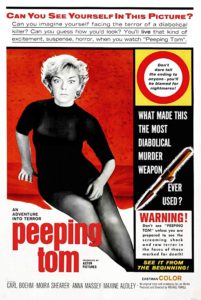
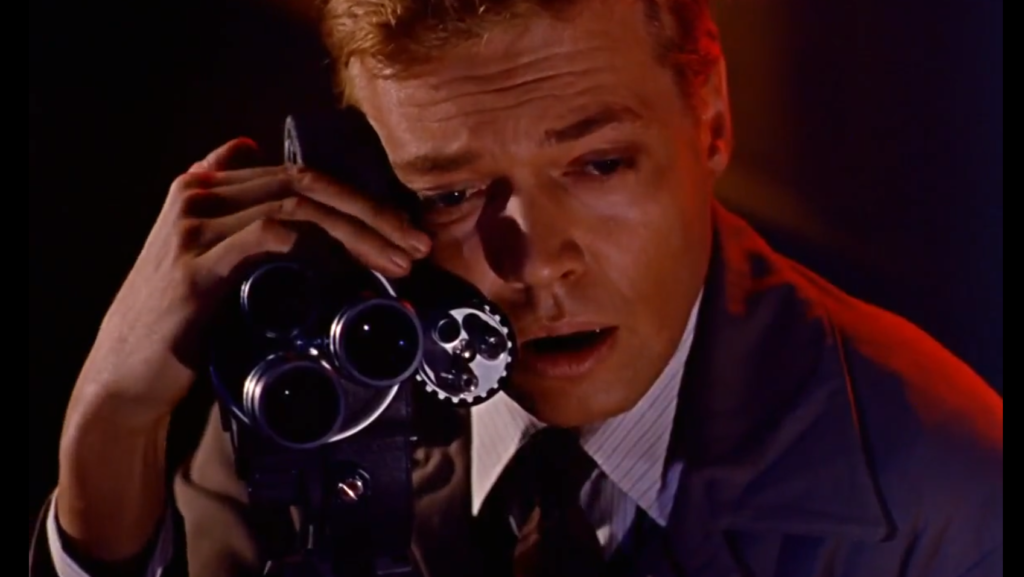
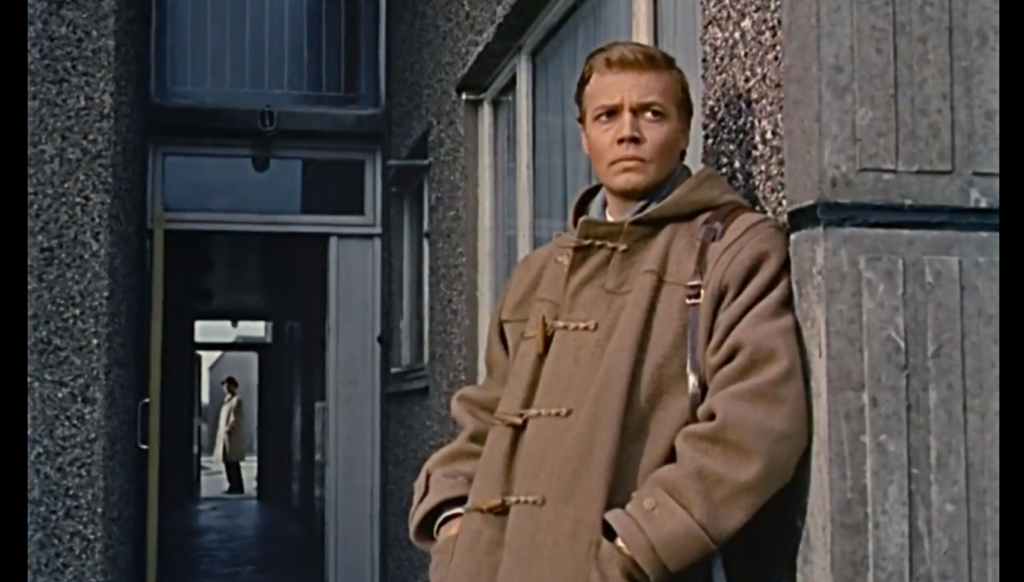
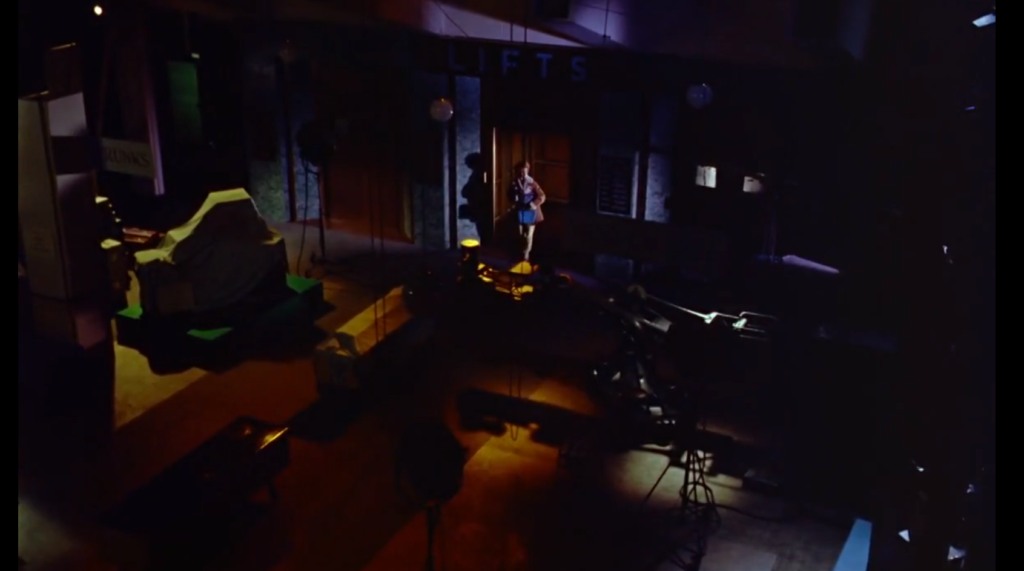
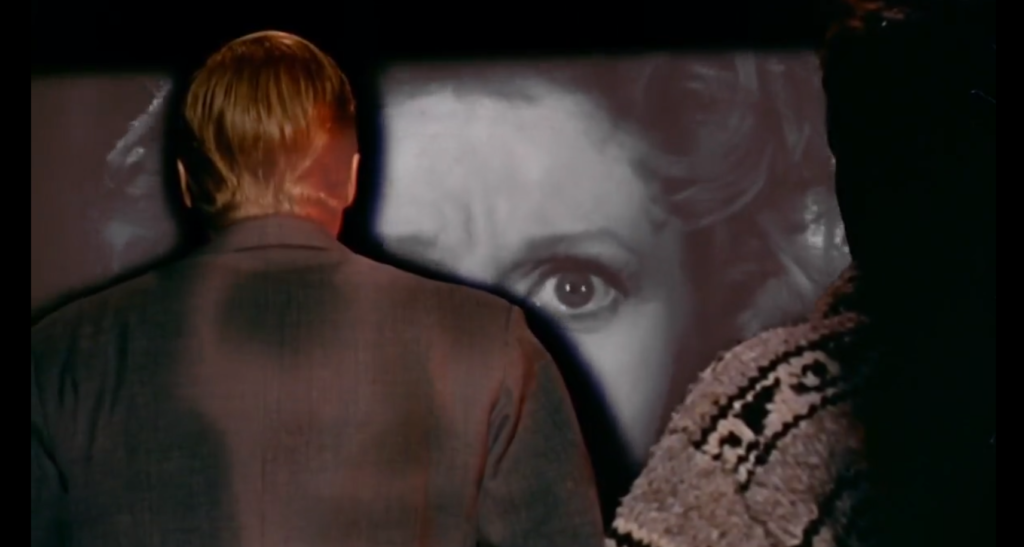
2 thoughts on “Peeping Tom (1960)”
A once-must, as a bold and challenging departure by a firmly established filmmaker.
In their collections, sometimes film fanatics have copies of films which they’ve seen but they don’t want to return to. All told, I’ve probably seen this film only 3 times – yet it’s in my library; no doubt because of my immense respect for the director and for the fact that, even though I wouldn’t necessarily relish subjecting myself to it again, it’s still a powerful film.
In that regard, ‘PT’ is rather like ‘The Pawnbroker’ (which I just, finally, rewatched): important, admirable (for its ambition), and punishing.
We’re told that ‘PT’ was responsible for largely finishing off Powell’s directing career – at least in wider circles; he still managed to get out 5 or 6 projects. But it seems he largely damaged his solid reputation. Surely a percentage of the public (and his fans) thought Powell had gone mad.
It’s true that it’s not for all tastes but its unique nature makes it a must for genuine film fanatics. (Just not on a double-bill with ‘The Red Shoes’. 😉 )
When Peary mentions that “we are entranced by horrible images”, I would think he’s generally referring more to men than women – though I’m a guy and I would not say I’m ever “entranced” by images or rape or torture or the like.
Side story: Many years ago – when I was living in Tokyo, one of my working connections was with an English-language magazine, mainly run by a young German guy. At one point, he planned a New Year’s Eve party at his apartment and he asked several people to each bring a movie on cassette. As I recall, the idea was not so much that people would sit and watch the movies (it was a party, after all) but that the films would act as ‘background’. At any rate, I brought ‘Peeping Tom’. I don’t remember why I chose that one. Knowing myself, I can’t think I would normally choose such a film for a party occasion. Maybe I had just watched it myself and was still overwhelmed by it. I don’t recall actually sitting to watch the film at the party – but, when it was on, I heard the German guy ask “Who brought this one?” and I said, “I did.” He seemed to give me a… what?, knowing look? 😉 The next time I saw him in the magazine office, he made a point of thanking me for bringing the film. Maybe because he was German and the main character was played by a German-Austrian actor, he…. identified? Hmm…
Interesting that you brought this to a party as background fare… That says something “meta” I think. 😉
Regarding Boehm being a German-Austrian actor, I neglected to point out the (to me obvious) fact that he looks and sounds like a blonde, handsome Peter Lorre from M. (I have yet to rewatch and review that one…)